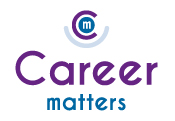
Managing Tricky Interview Questions and Stressful Interviews with Ease
Interviews can be daunting, particularly when faced with difficult questions or high-pressure situations. Whether you’re returning to the job market after redundancy or seeking a new challenge, knowing how to navigate these scenarios confidently can make all the difference.
We’ll help you with managing difficult interview questions and the stress you might feel at interviews so you can present yourself in the best possible light and boost your chances of landing the job.
Managing Stressful Interviews: Why Do They Cause Anxiety?
Job interviews often bring together a combination of high stakes, uncertainty, and self-assessment. Stress can arise from:
- Fear of the unknown
- Pressure to make a good impression
- Lack of preparation
- Negative past experiences
- Uncertainty following redundancy or a career break
Understanding your stress triggers is the first step towards managing them.
Preparing for Tricky Interview Questions
Interview preparation reduces anxiety and helps you take control. Common tricky interview questions often include:
- “What is your biggest weakness?”
Why it’s asked: To assess your self-awareness and honesty
How to answer: Choose a real, work-relevant weakness and explain how you’re working to improve it (or have already learnt to overcome it).
Example: “I used to find it difficult to delegate because I wanted things done a certain way. Over time, I’ve learned that trusting others and providing clear guidance leads to better outcomes and supports team development.”
- “Tell me about a time you failed.”
Why it’s asked: To understand how you handle setbacks.
How to answer: Use the STAR method (Situation, Task, Action, Result) to outline a genuine failure and what you learned from it.
Example: “In a previous role, I underestimated how long a project would take, which caused delays. I learned to build more contingency into timelines and to communicate more proactively with stakeholders, which meant that the following projects were achieved on time.”
- “Why did you leave your last job?” (especially following redundancy)
Why it’s asked: To explore your motivations and circumstances.
How to answer: Be honest but positive. If you were made redundant, explain it professionally and emphasise what you’re looking for next.
Example: “My role was made redundant following a restructure. It was a great opportunity to reflect on what I want next, and I’m excited to bring my skills to a new challenge.”
- “Why should we hire you?”
Why it’s asked: To understand your confidence and value.
How to answer: Highlight 2–3 key strengths or experiences that match the job and explain how they will benefit the company.
Example: “I have experience in customer service leadership, a proven ability to improve satisfaction scores, and a record of reducing costs through process improvement. I’m confident I could bring immediate value to your team.”
- “Where do you see yourself in five years?”
Why it’s asked: To see if your goals align with the company.
How to answer: Be ambitious but realistic. Focus on professional development, learning, and contributing to the business.
Example: “In five years, I hope to have taken on more responsibility and contributed to some major projects. I’m keen to grow within an organisation that values long-term development.”
Managing Stressful Interviews: How to Stay Calm
Even with preparation, nerves can take over. Practical tips for managing stressful interviews include:
- Practise Deep Breathing
Slow, deep breathing activates your body’s relaxation response. Take a few calm breaths before entering the interview room (or before a video interview).
- Visualise Success
Picture yourself answering confidently and connecting with the interviewer. This builds a sense of control and confidence.
- Reframe Nerves as Excitement
Your body responds similarly to both nerves and excitement. Tell yourself, “I’m excited about this opportunity,” to help change your mindset.
- Pause Before Answering
You don’t have to answer immediately. A short pause shows thoughtfulness and gives you a moment to breathe.
- Focus on the Conversation, Not the Outcome
Rather than fixating on getting the job, aim to enjoy the conversation. Interviews are a two-way street.
What Employers Look For Beyond the Answers
Interviewers aren’t just listening to your words. They’re observing your body language, tone, attitude, and how you respond under pressure. Answer their tricky interview questions by showing that you:
- Take ownership of past experiences
- Learn and adapt
- Are self-aware and emotionally intelligent
- Can remain composed in challenging situations
Unusual + Tricky Interview Questions Combined: How to Tackle Them
Some interviewers like to throw curveballs to test creativity or see how you think under pressure. Whilst we would not recommend these questions for employers to use (there are much more useful ways to measure role requirements), you may still be asked them.
- “If you were an animal, what would you be and why?”
Pick an animal that reflects strengths relevant to the role. E.g., “A border collie—intelligent, hardworking, and great in a team.”
- “How many tennis balls can fit in a Mini?”
This tests logical thinking. Talk through your process. “Well, I’d estimate the volume of the car and a tennis ball, then divide one by the other…”
- “Sell me this pen.”
Classic for sales roles. Focus on asking the “customer” questions about their needs, then explain how the pen meets those needs.
Manage The Interview
The key to managing tricky interview questions and stressful interviews lies in interview preparation, self-awareness, and building techniques to handle pressure. Everyone gets nervous, but with the right tools and practice, perhaps with a career coach, you can turn interviews into an opportunity to showcase your strengths.
Whether you’re re-entering the job market, changing careers, or stepping up into a leadership role, support is available. At Career Matters, we help clients through one-to-one coaching, with CV writing and LinkedIn profiles mock interviews, and tailored support designed to increase confidence and performance.
Ready to prepare with confidence? Contact Career Matters today to explore how coaching can help you succeed at your next interview.

